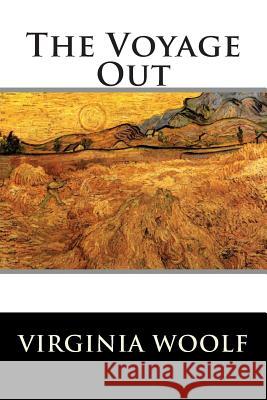The Voyage Out » książka
The Voyage Out
ISBN-13: 9781512254419 / Angielski / Miękka / 2015 / 190 str.
The sad overtones of this novel's beginning concern Helen Ambrose's departure from London, where she is leaving her two young children because she and her husband, Ridley Ambrose, are sailing to an unnamed resort on the South American coast, where they will spend the winter season. The omniscient narrator tells the reader that, as they walk through an ugly, industrialized London, Helen's mind-filled with "misery for her children, the poor, the rain"-"was like a wound exposed to dry in the air." By the novel's end, this wound will be opened again by the death of Rachel Vinrace. The Ambroses are going to sail on the cargo ship Euphrosyne, owned by Willoughby Vinrace, Helen's brother-in-law, who plans to sail on to the Congo region after allowing the Ambroses to disembark at their resort. Also on board is Vinrace's daughter Rachel, who is, except for her talent as a pianist, a nondescript young woman when Helen meets her, though "she might be interesting" if she "were ever to think, feel, laugh, or express herself," Helen thinks. Rachel plans to travel to the Congo with her father-until Helen proposes that her niece stay with her and Ridley at the resort. Rachel hesitantly agrees to Helen's plan, but her father is more enthusiastic because he believes that Helen, his dead wife's sister, could help him by helping Rachel, by "bringing her out," by "making a woman of her, the kind of woman her mother would have liked her to be...." (Vinrace intends to go into politics after he returns to London, and he wants to be able to depend upon Rachel to entertain his "constituents," to "be of great help" to him; in short, he wants his daughter to be "a Tory hostess.") Helen's plan is to help Rachel become a thinking individual. Thus, the literal "voyage out" lasts four weeks and ends where Rachel's voyage of individuation toward authentic selfhood begins. Helen, Ridley, and Rachel are at the resort only a short time before the two women become friends with several people staying in a hotel down the hill from the Ambroses' villa; the two most important of these new friends are St. John Hirst, a scholar from Oxford, and his friend Terrence Hewet, an aspiring novelist. Hirst, who perceives most women as "objects," finds unexpected pleasure in talking with Helen, though he finds Rachel annoyingly unthinking and unread. Hewet's relationship with Rachel is based upon an intuitive and emotional, rather than intellectual, understanding, and he spends much time defending Hirst to her, assuaging the pain and anger she feels as a result of various insulting and condescending comments Hirst makes to her, and helping her to look at herself...
Zawartość książki może nie spełniać oczekiwań – reklamacje nie obejmują treści, która mogła nie być redakcyjnie ani merytorycznie opracowana.











